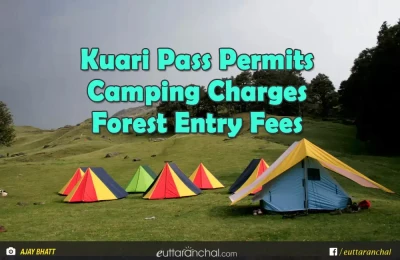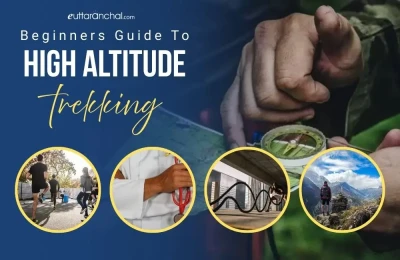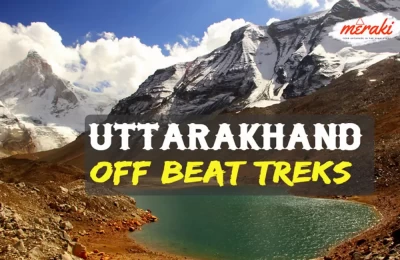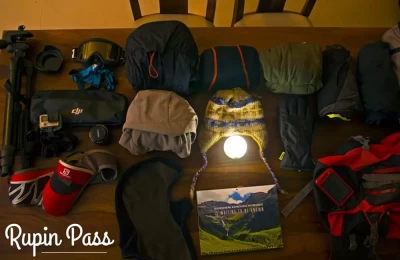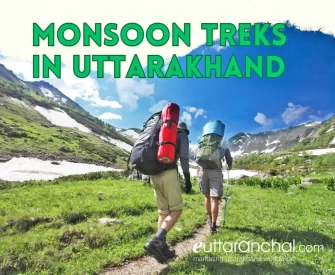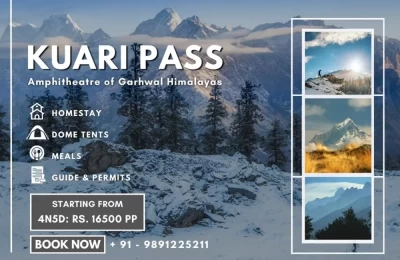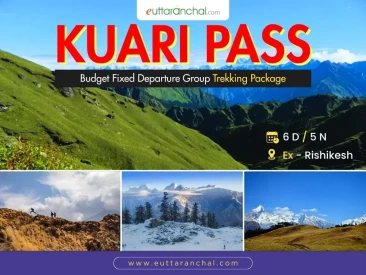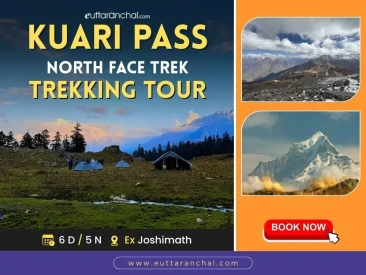Kuari Pass Trekking Do's and Don'ts - Things to Consider
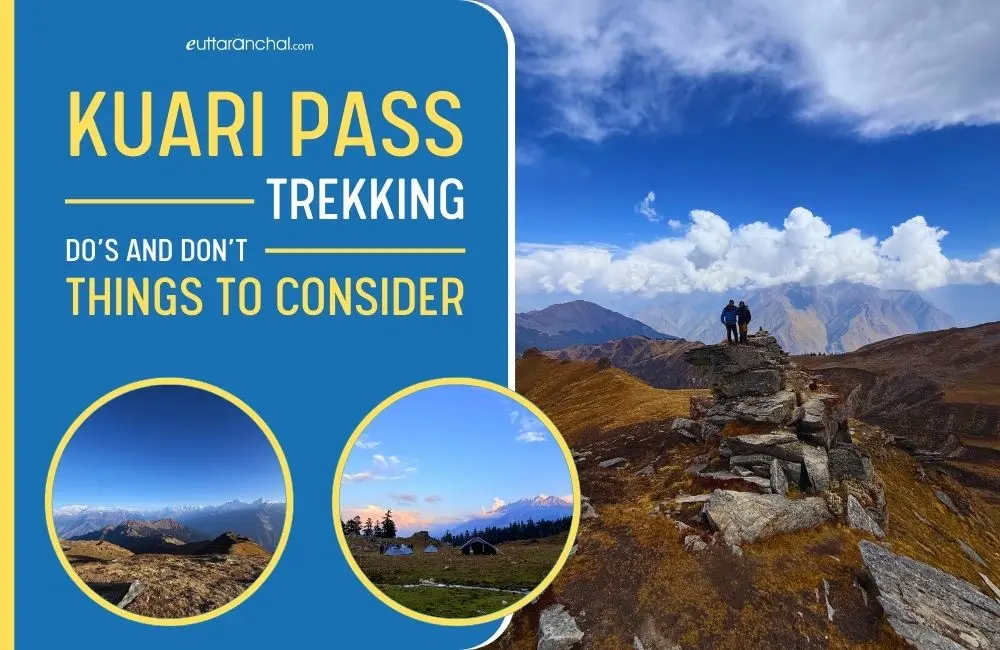
Planning for Kuari Pass Trek? Here are key things to remember for the Kuari Pass Trek in Uttarakhand, India, to ensure a safe and enjoyable experience.
Check out things to consider before planning trek to Kuari pass, Do's an Don'ts during the trek
Kuari Pass Pre-Trek Preparation
Permit and Registration: Obtain a forest permit from the Joshimath Forest Office or through a trekking agency (?100–?300 for Indians, higher for foreigners). Register with the local authorities for safety tracking. Arrange this 10–15 days in advance. Check Kuari Pass Permits, Forest Entry Frees
Fitness Level: The trek is moderate to difficult (20–22 km one way). Train with regular cardio, hill walks, and strength exercises for 4–6 weeks. Acclimatize in Joshimath (1,875m) or Auli (2,500m) before starting.
Weather Check: June marks the end of the ideal trekking season (May–June). Expect daytime temperatures of 10°C–18°C and nights of 2°C–7°C, with possible early monsoon showers (July–August). Monitor IMD forecasts for Nainital or Chamoli districts.
Trekking Operator: Book with reputed and authentic agencies for guides, permits, and equipment. Solo trekking may require local guide approval.
Packing Essentials of Kuari Pass
Clothing: Layered outfits (thermals, fleece jacket, waterproof windcheater), trekking shoes with good grip, woolen socks (2–3 pairs), cap/hat, gloves, and a scarf.
Gear: Rucksack (40–60L), trekking poles, headlamp with extra batteries, waterproof cover, sleeping bag (rated for 0°C), and a small daypack.
Supplies: 2–3 liters of water, water purifier tablets, high-energy snacks (nuts, energy bars, dry fruits), and packed lunch (no eateries en route).
Personal Items: First-aid kit (bandages, painkillers, Diamox for altitude sickness), sunscreen (SPF 30+), sunglasses, ID proof, and a basic toilet kit.
Documents: Permit copy, ID, and medical certificate (if required by the operator).
Do's
1. Obtain a necessary permit before starting your trek.
2. Study the weather forecast of the area before heading for your trekking trip. Avoid trekking during bad weather or adverse climatic situations.
3. It is compulsory to hire a local guide and porter for your safety and convenience. Local guides are knowledgeable about the terrain and can rescue you in case of an emergency.
4. Pack all hiking essentials (best waterproof jacket, best waterproof pants, water, food, illumination (headlamp or flashlight), warm clothing, first aid kit, navigation aids) so that you can be entirely self-sufficient.
5. Always stay on designated trails to avoid damaging fragile ecosystems. Going off-trail can also put you at risk of getting lost or encountering dangerous terrain.
6. Gradually acclimatize to higher altitudes to prevent altitude sickness. Maintain a steady pace and listen to your body; descend if experiencing severe symptoms.
7. The motto is “don’t take anything but pictures and leave nothing but footprints.” Hence, carry a bag for garbage and always pack out all trash and waste, including food scraps and wrappers.
8. Use toilets wherever available.
9. Be aware of altitude sickness symptoms, such as dizziness, shortness of breath, nausea, and headaches. If you experience any of these, descend to a lower elevation.
10. If you encounter other hikers on the trail, yield to them by stepping aside or moving to the side of the trail to let them pass. Uphill hikers generally have the right of way.
11. Respect nature and wildlife.
12. You will have to be in constant contact with the Forest Department during the permission period.
13. Registered tour operators, guides, and porters shall abide by, and help trekkers to understand and abide by, the provisions of The Wildlife Protection Act 1972 and The Indian Forest Act 1927.
14. The Forest Department will not be responsible for any mishap, injury, accident, or death of the participant while on the trek.
Don'ts
1. Avoid making excess noise (shouting only in the case of an emergency).
2. Do not bury or burn trash, as it can harm the environment and wildlife.
3. Avoid using products with strong scents because they attract animals with strong senses of smell. Remain vigilant and be aware of your surroundings.
4. Do not carry or use fuelwood/camping stoves during the entire trek.
5. Flying of drones is not allowed in the Park Area without the permission of the Chief Wildlife Warden, Uttarakhand Forest Department.
6. Do not take away flora and fauna (in the forms of cuttings, seeds, or roots) and any geological specimen. It is illegal. The environment is delicate and the biodiversity of the region must be protected at all costs.
7. Do not leave cigarette butts or make open fires in the forests.
8. Do not consume aerated drinks, alcohol, drugs, or any other intoxicants and throw bottles in the wild.
9. Do not carry firearms, ammunition, or chemicals harmful to wildlife.
10. Do not disturb plants, animals, or natural habitats, and keep a safe distance from wildlife. Avoid feeding wildlife and do not approach them for photos.
11. No shooting, hunting, or teasing of wild animals will be carried out.
12. Do not carry or introduce any alien seed or propagation material or any plant species.
13. Do not carry or introduce any wild or pet animals.
14. Don’t deface, put signboards, write, or paint on tree trunks, rocks, infrastructure, or boundary pillars, etc.
Useful Tips
- Drink 3–4 liters of water daily. Eat light, frequent meals to maintain energy on steep climbs.
- Follow the guide’s instructions, stay on marked trails, and avoid shortcuts. Watch for slippery paths due to early monsoon rains.
- Consult a doctor if you have heart/lung conditions. Carry altitude sickness meds and inform the guide of health issues.
